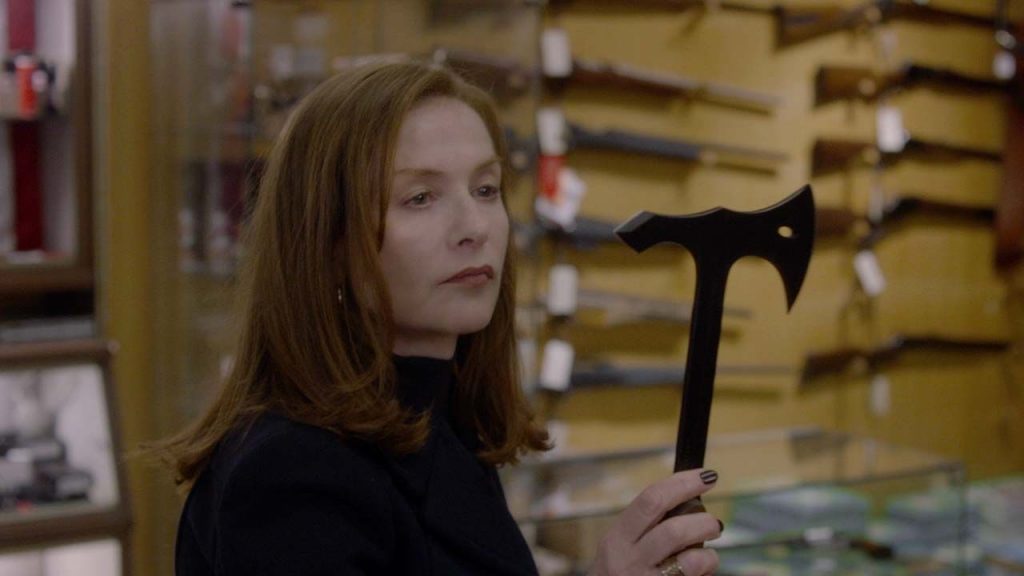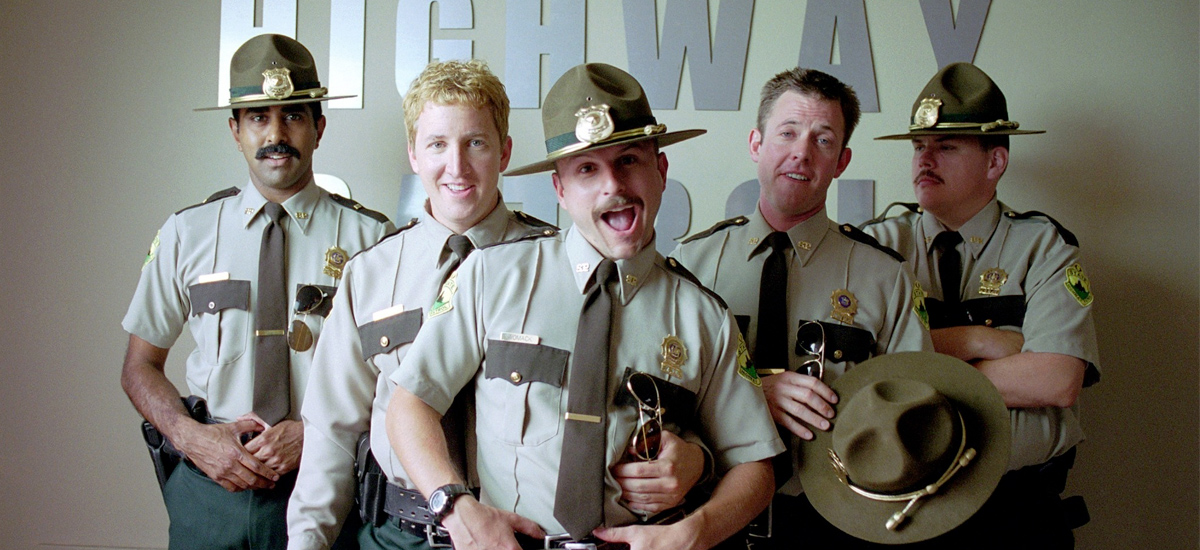If you watch Elle looking for a big dramatic moment that explains why Isabelle Huppert won a Golden Globe for her performance, you’re not going to find it. Instead, she delivers a fully realized and unique character that expresses a range of emotions through her eyes and tiny facial expressions. And it’s not even that as much as it is the subtle revelation of what exists behind those eyes within an extremely complicated mind.
This might sound like an unusual thing to say considering she plays a victim of rape. Although she obviously goes through trauma during the assault, there’s no apparent emotional breakdown at any time afterwards. Instead, she holds it all inside. Sure, it damages her, but she doesn’t let it show, calmly announcing at dinner with friends many days later what happened to her. The reason for this attitude is what makes Elle, the movie, as interesting as the woman herself.
Michele Leblanc (Huppert) has a past that she’d like to believe is behind her. However, following the opening scene’s violent attack, it is resurrected to haunt her. It’s the primary reason she doesn’t go to the police. It’s related to her mother, Irene (Judith Magre) and her vanity. It’s related to her son, Vincent (Jonas Bloquet) and his naivety. It’s related to her friendship with another woman, Anna (Anne Consigny) and her affairs with other men.
 If I’m being vague, it’s purposeful. Every small revelation about Michele provides a clue that helps explain her action (or inaction). Despite the subject matter, Elle is a mystery, whodunit, or thriller only on the surface. Underneath, it’s really a drama… an expanded (and enthralling) character study. I’m not sure you ever understand completely why she makes the decisions that she does; nevertheless, they’re entirely believable.
If I’m being vague, it’s purposeful. Every small revelation about Michele provides a clue that helps explain her action (or inaction). Despite the subject matter, Elle is a mystery, whodunit, or thriller only on the surface. Underneath, it’s really a drama… an expanded (and enthralling) character study. I’m not sure you ever understand completely why she makes the decisions that she does; nevertheless, they’re entirely believable.
Most fascinating are the aforementioned relationships with the men in her life. She obviously still loves her ex-husband, Richard (Charles Berling), although she left him over a single incident. She obviously despises her lover, Robert (Christian Berke), but continues meeting him for sex. She watches her new neighbor, Patrick (Laurent Lafitte), through binoculars as she fingers herself. And she questions the physical threat that her surly employee, Kurt (Lucas Prisor), may pose to her.
After I watched Elle, a friend asked how I liked it. I replied that I wasn’t sure. After sleeping on it, though, it won’t leave my mind. It’s such a compelling movie, not because of its action or big moments, but because of its psychology and small moments. “Elle” could be short for Michele, I suppose, but it’s also French for “she.” From that perspective, it’s a less personal representation of the movie, one that indicates Michele represents all women, isolated by the tragic events of their lives, but stronger because of them.



